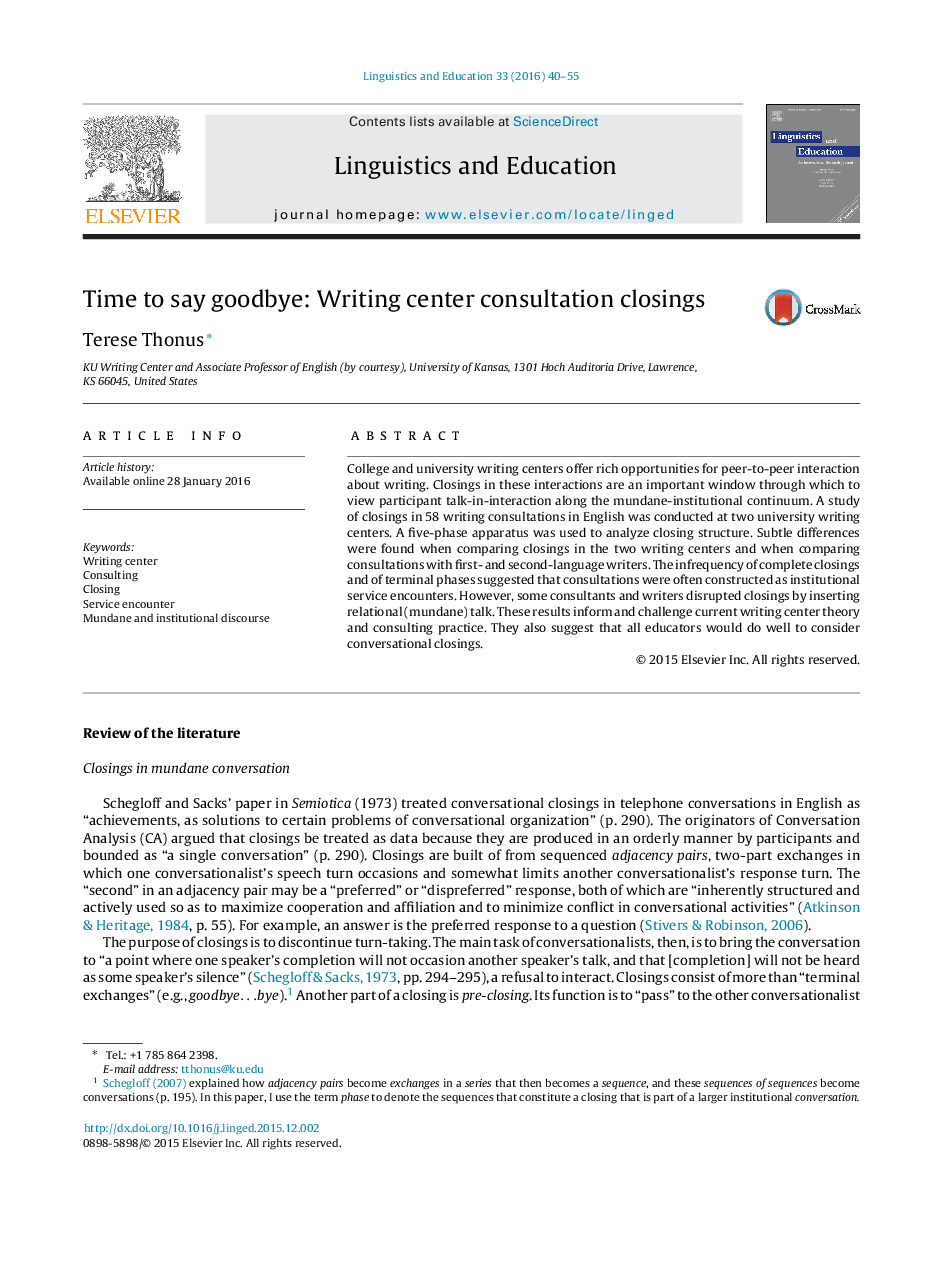| Article ID | Journal | Published Year | Pages | File Type |
|---|---|---|---|---|
| 366075 | Linguistics and Education | 2016 | 16 Pages |
•More complete than incomplete closings featured in the consultation data.•Re-opening was the most frequent phase in closings, and thanking functioned as a terminal.•Structure and content varied with record-keeping practices of each writing center.•Closings were more likely to be complete in L1 vs. L2 consultations.•Results complicate the characterization of consultations as peer-to-peer interactions.
College and university writing centers offer rich opportunities for peer-to-peer interaction about writing. Closings in these interactions are an important window through which to view participant talk-in-interaction along the mundane-institutional continuum. A study of closings in 58 writing consultations in English was conducted at two university writing centers. A five-phase apparatus was used to analyze closing structure. Subtle differences were found when comparing closings in the two writing centers and when comparing consultations with first- and second-language writers. The infrequency of complete closings and of terminal phases suggested that consultations were often constructed as institutional service encounters. However, some consultants and writers disrupted closings by inserting relational (mundane) talk. These results inform and challenge current writing center theory and consulting practice. They also suggest that all educators would do well to consider conversational closings.
